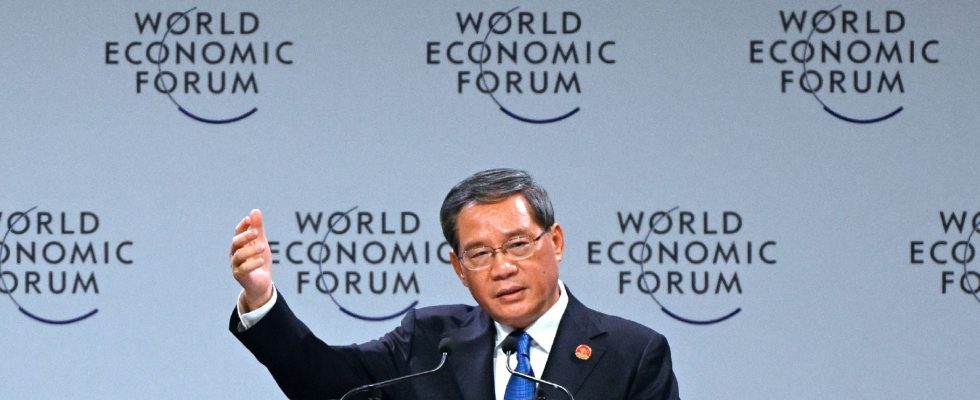For the first time in four years, European leaders are traveling in person to Beijing for a China-European Union (EU) summit. The President of the Commission, Ursula von der Leyen, and the President of the European Council, Charles Michel, met this Thursday, December 7 in the morning with the Chinese President, Xi Jinping, before meeting in the afternoon with Prime Minister Li Qiang.
“China is the EU’s most important trading partner,” recalled Ursula von der Leyen in Beijing to the Chinese president, “but there are clearly imbalances and differences that we must address.” “We must respond together to global challenges and work together to promote stability and prosperity in the world,” declared Xi Jinping for his part during this first meeting with the duo at the head of Europe.
Trade, main sticking point
The last summit, in April 2022, was described as a “dialogue of the deaf” by Josep Borrell, high representative of the EU for foreign affairs. It is true that there are many areas of contention and points of view seem irreconcilable. Commercial interests diverge and will be the main topic of conversation according to Cyrille Bret, associate researcher at the Delors Institute. “The main federalized European policy concerns economic issues, the European delegation will therefore be able to commit on behalf of the European Union on this point,” the specialist in international relations underlines to L’Express. Especially since the subject is major: the trade deficit between China and the European Union amounted to around 400,000 billion euros, including around thirty billion euros of deficit for France. “This is an important subject for both powers, including for China which is very dependent on exports,” specifies Cyrille Bret. The world’s two main trading powers will therefore address these major issues for the 24th time, in the space of 24 summits. No statement will be issued on Thursday following the talks, EU officials said.
“The summit will be used to note the disagreements, the tensions and to take stock,” says Cyrille Bret for whom the hope of reaching any agreement is zero. “The Chinese economy and its foreign trade are showing a slowdown in growth. This affects the social pact in China and the country cannot stop subsidizing its industries without risking jeopardizing its stability, analyzes the researcher. For his part, “The EU is only just beginning to try to address its trade deficit and China’s unfair competition strategies.” The period therefore marks more the beginning of a “process of tension” and a balance of power than a stage of conflict resolution.
A “fool’s game” around the Ukrainian question
Discussions around China’s strategy towards Russia and the war in Ukraine will also be a “fool’s game” according to the specialist. “The two points of view are incompatible. China seeks to develop its partnerships with Russia while Europe is engaged in a process of support for Ukraine which it considers vital for its values.” A rapprochement therefore appears highly improbable as the interests are contradictory.
Questions concerning environmental protection are also unlikely to move forward this Thursday. “Environmental damage will only be addressed from a commercial angle because environmental policy is not federalized,” recalls the researcher who is also founder of the media EurAsia Prospective. There will also undoubtedly be elements of language concerning the absence of Xi Jinping at COP 28.”
Should we therefore consider these summits useless? Surely not. “This is the role of diplomatic formats,” observes Cyrille Bret. They serve to better understand the positions of the other, to establish a map of points of disagreement and a hierarchy of them and, ultimately, to progress very gradually. “The work upstream and downstream of these summits is also important to move forward,” specifies the researcher at the Delors Institute. It is the time and regularity of the dialogue that can ultimately produce results. “The fact that there is a summit, with all the representatives physically present, is already an important step for the daily life of Europeans, businesses and the international stature of the European Union.” A slight reason for satisfaction but with which observers will have to be content.
